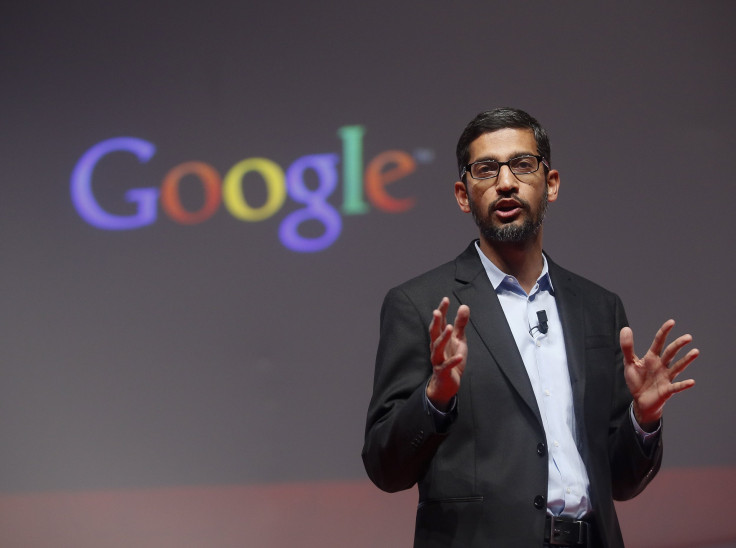Google SVP Sundar Pichai Confirms MVNO; Carrier Launching Wireless Service In 'Coming Months'

Google really wants users connected to its services at all times. The company’s plan to provide wireless service is a go and will be available in the coming months, Sundar Pichai, senior vice president of products, said Monday during a keynote at the World Mobile Congress.
However, Google says it doesn’t intend to have all mobile users drop their current service in favor of its own. Pichai said Google is working on this project in the same spirit that it works on its brand of mobile devices. The tech giant intends to carve out a piece of the industry in order to demonstrate how it thinks things should work.
“Our goal is to drive a set of innovations we think should arrive, but do it on a smaller scale, like Nexus devices, so people will see what we're doing,” Pichai said during his keynote. “It’s a very small-scale compared to the rest of the OEM industry, but it pushes the needle. I think we’re at the state where we need to think of hardware, software and connectivity together.”
Google is expected to work with more established operators to provide the bandwidth for its service. In addition, Google will likely use local Wi-Fi networks to enhance cellular coverage on its network, according to CNET. The company likely won’t attempt an industry shake-up in terms of driving down prices.
Most details about the service, such as what networks Google is working with and the cost, remain unknown. Some reports indicate that Google may collaborate with T-Mobile and Sprint. T-Mobile CEO John Legere spoke favorably about the idea of Google establishing a mobile network during the carrier’s fourth-quarter earnings call, but he would not divulge whether the Magenta network is involved. By operating its own network, Google will make itself what the industry calls a mobile virtual network operator (MVNO), similar to Virgin Mobile, Cricket and MetroPCS, all of which use the networks of wireless carriers such as Verizon or T-Mobile to operate their own services.
Meanwhile, Verizon CFO Francis Shammo said during the network’s fourth-quarter earnings call that Google intends to get more users connected to its search engine more than it wishes to bolster wireless technology. He said once Google’s network is established, it would be “just another competitor” on the mobile market.
But Pichai said Google has since spoken with the top two U.S. networks, Verizon and AT&T, to ensure that its initiative does not interfere with Google’s relationship with those networks.
Google is expected to discuss its MVNO at its I/O conference in late May. The company similarly announced its Android One initiative to bring high-quality yet affordable smartphones to consumers in developing markets during its 2014 I/O conference.
© Copyright IBTimes 2024. All rights reserved.












